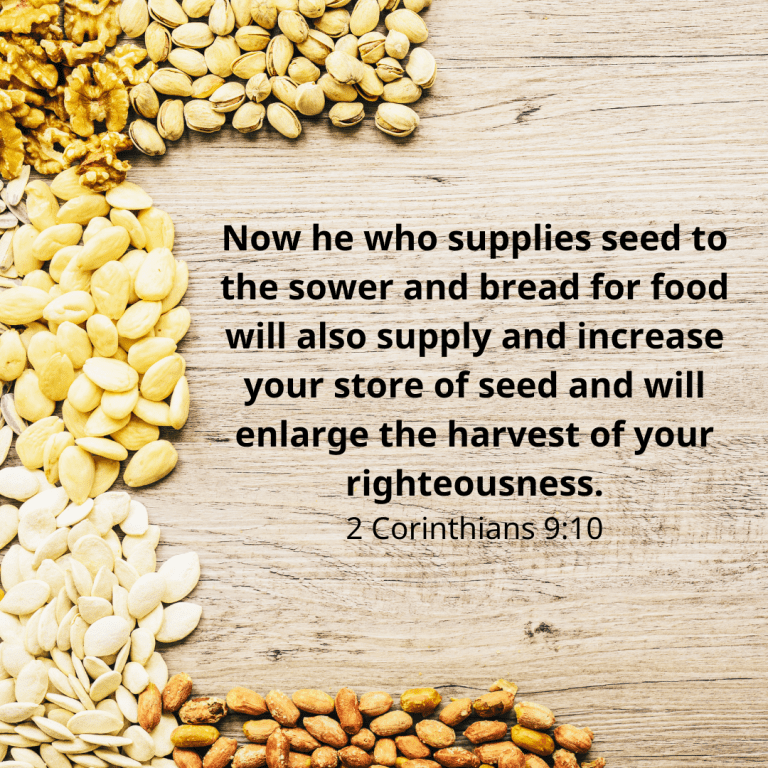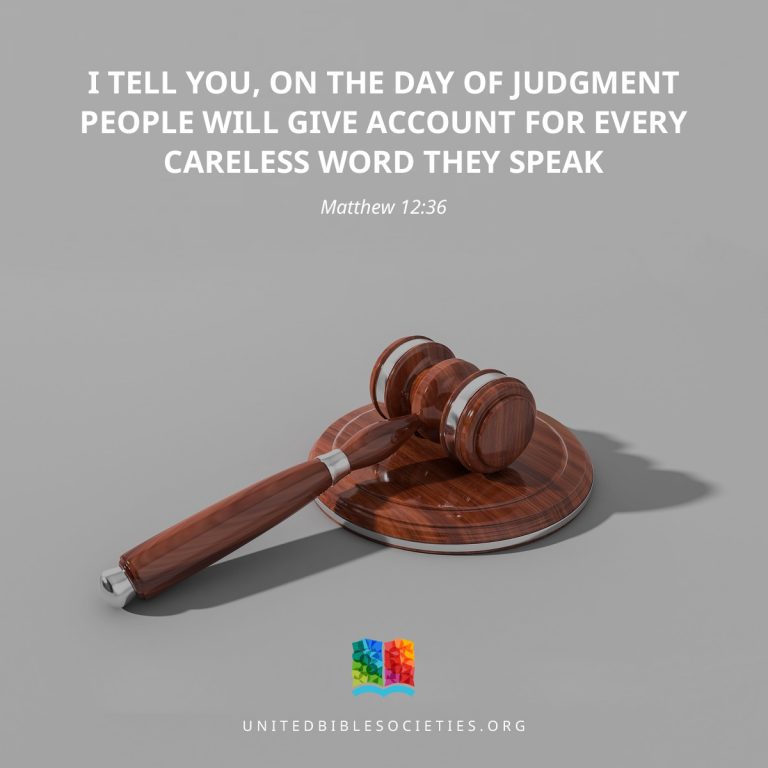
Avoiding stress during exams is essential for maintaining focus, performing well, and staying healthy. Here’s a biblical, practical, and actionable guide to managing stress effectively during exam time:
1. Start with Prayer and Trust in God
- Philippians 4:6-7 – “Do not be anxious about anything, but in every situation, by prayer and petition, with thanksgiving, present your requests to God.”
Tip: Whenever you feel overwhelmed, pause and pray. Surrender your worries to God.
Action:
- Start and end your study sessions with a short prayer.
- Keep a prayer journal where you express your concerns and ask God for peace.
2. Stay Organized with a Study Plan
- 1 Corinthians 14:40 – “But everything should be done in a fitting and orderly way.”
Tip: A well-organized study schedule prevents last-minute cramming and reduces stress.
Action:
- Break your syllabus into manageable chunks, covering a little every day.
- Use tools like a study timetable or to-do list to track progress.
3. Take Care of Your Body
- 1 Corinthians 6:19-20 – “Your body is a temple of the Holy Spirit… Therefore, honor God with your bodies.”
Tip: Eating well, exercising, and sleeping enough will help your brain function better.
Action:
- Exercise: Take short walks or do light stretches between study sessions.
- Sleep: Aim for 7-8 hours of sleep per night to improve concentration.
- Eat Nutritious Foods: Include fruits, vegetables, and water to keep your energy up.
4. Take Breaks and Rest
- Exodus 20:8-10 – “Remember the Sabbath day by keeping it holy…”
Tip: Rest is essential to recharge your brain and avoid burnout.
Action:
- Take 10-15 minute breaks every hour to relax your mind.
- Set aside one day a week to rest and engage in something you enjoy.
5. Avoid Comparison with Others
- Galatians 6:4 – “Each one should test their own actions… without comparing themselves to someone else.”
Tip: Comparing yourself with classmates can lead to unnecessary anxiety. Focus on your progress and efforts.
Action:
- Remind yourself that your journey is unique, and God has a plan for you.
- Celebrate small achievements along the way, like completing a topic or practice test.
6. Practice Deep Breathing and Relaxation Techniques
- Psalm 46:10 – “Be still, and know that I am God.”
Tip: When stress creeps in, breathe deeply and meditate on God’s presence.
Action:
- Deep Breathing: Inhale for 4 seconds, hold for 4 seconds, and exhale for 4 seconds. Repeat several times.
- Play soft, relaxing worship music while you study or during breaks.
7. Stay Positive and Speak Life Over Yourself
- Proverbs 18:21 – “The tongue has the power of life and death…”
Tip: Replace negative thoughts with positive affirmations rooted in Scripture.
Action:
- Speak aloud Scriptures like: “I can do all things through Christ who strengthens me” (Philippians 4:13).
- Avoid saying things like “I will fail” or “This is too hard.” Instead, say, “I am prepared, and God is with me.”
8. Engage in Fellowship with Others
- Ecclesiastes 4:9-10 – “Two are better than one… If one falls down, the other can help him up.”
Tip: Talk to family, friends, or mentors when you feel overwhelmed.
Action:
- Join a study group for encouragement.
- Share your concerns with someone who can pray with you and provide guidance.
9. Limit Distractions and Focus on the Present
- Matthew 6:34 – “Do not worry about tomorrow, for tomorrow will worry about itself.”
Tip: Avoid worrying about the future or dwelling on past mistakes. Stay focused on what you can do today.
Action:
- Set specific times to study without distractions from social media or phone notifications.
- Tackle one subject or task at a time to avoid overwhelm.
10. Trust God with the Outcome
- Proverbs 3:5-6 – “Trust in the Lord with all your heart and lean not on your own understanding…”
Tip: After you’ve done your best, trust God to handle the rest.
Action:
- After each exam, pray and thank God for the strength to finish.
- Avoid overanalyzing your performance, trust that God’s plan is perfect.
Conclusion
Managing stress during exams is about trusting God, planning wisely, taking care of yourself, and staying focused on the present. Remember that success is not just about grades—it’s about learning, growing, and relying on God’s strength. Following this guide will help you stay calm, focused, and productive throughout the exam season. You’ve got this! God is with you every step of the way.

The season of harvest is a time of gratitude, reflection, and abundance. For farmers, it signifies the end of a season of hard work, when crops are gathered, and the fruits of labor are celebrated. Spiritually, it reminds us of God’s faithfulness and the importance of sowing seeds of righteousness in our lives. The Bible speaks of harvest not just as an agricultural event but as a symbol of spiritual growth, provision, and God’s blessings.
Here are seven Bible verses that reflect the beauty, meaning, and significance of harvest time:
1. Galatians 6:9
“Let us not become weary in doing good, for at the proper time we will reap a harvest if we do not give up.”
Just as the harvest comes after a season of hard labor, our spiritual harvest will come if we remain steadfast in our efforts to live righteously. God’s timing is perfect, and we must trust that our diligence will bear fruit.
2. Matthew 9:37-38
“Then he said to his disciples, ‘The harvest is plentiful but the workers are few. Ask the Lord of the harvest, therefore, to send out workers into his harvest field.’”
Here, Jesus calls on us to be workers in this field, sharing the good news of salvation and helping to bring others into the kingdom of God. Harvest time is not just about receiving but also giving — sharing God’s love with the world.
3. Psalm 126:5-6
“Those who sow with tears will reap with songs of joy. Those who go out weeping, carrying seed to sow, will return with songs of joy, carrying sheaves with them.”
We may endure seasons of sorrow, but God promises that those who faithfully sow, even through hardship, will one day reap a harvest of joy. There is hope in the midst of trials, and the harvest will be a time of celebration.
4. Proverbs 10:5
“He who gathers crops in summer is a prudent son, but he who sleeps during harvest is a disgraceful son.”
Just as a farmer must be attentive during the harvest to gather his crops, we must be alert and ready to seize the spiritual opportunities that God places before us. Laziness and neglect lead to missed blessings, but diligence ensures that we reap the benefits of our labor.
5. 2 Corinthians 9:10
“Now he who supplies seed to the sower and bread for food will also supply and increase your store of seed and will enlarge the harvest of your righteousness.”
God is the provider of all things, and He ensures that those who sow will have what they need to reap a harvest. Not only does He provide materially, but He also increases the harvest of righteousness in our lives, enabling us to grow in character, faith, and good works. Our trust in God’s provision is important to experiencing His abundance.
6. James 3:18
“Peacemakers who sow in peace reap a harvest of righteousness.”
When we sow seeds of peace and righteousness, we reap a harvest of goodness and integrity. Just as the farmer carefully chooses what to plant, we must be mindful of the seeds we sow in our relationships and daily actions.
7. John 4:35
“Don’t you have a saying, ‘It’s still four months until harvest’? I tell you, open your eyes and look at the fields! They are ripe for harvest.”
The time for action is now, not later. The fields are ripe, and God is calling us to step into His work, sharing His love and truth with those who are ready to receive it. There is an urgency in the harvest, and we are called to respond.
Conclusion
Harvest time is a powerful reminder of God’s faithfulness and the spiritual principles of sowing and reaping. Whether we are harvesting crops or gathering the fruits of our spiritual labor, we are called to trust in God’s provision and timing. As we reflect on these Bible verses, may we be inspired to continue sowing seeds of righteousness, peace, and faithfulness, knowing that in due season, we will reap a bountiful harvest.

The Bible is rich with wisdom regarding the power of our words. Throughout Scripture, we are reminded that the tongue—though small—holds the capacity to uplift, destroy, heal, or harm. The words we speak can shape destinies, mend relationships, or cause deep wounds. Let’s explore seven Bible verses that illuminate the profound power of the tongue.
1. Proverbs 18:21 – “Death and life are in the power of the tongue, and those who love it will eat its fruits.”
The words we choose to speak can bring encouragement, love, and healing, or they can cause hurt, division, and destruction. The “fruits” we reap from our words reflect their power—whether for good or ill.
2. James 3:5-6 – “So also the tongue is a small member, yet it boasts of great things. How great a forest is set ablaze by such a small fire! And the tongue is a fire, a world of unrighteousness.”
Although it is a small part of the body, the tongue can cause significant harm, much like a small spark can ignite an entire forest fire. James warns believers of the dangers of careless speech, reminding us that words can spread like wildfire, causing damage that can be difficult to undo.
3. Proverbs 12:18 – “There is one whose rash words are like sword thrusts, but the tongue of the wise brings healing.”
Words spoken in haste or anger can cut deeply, inflicting pain and damage similar to physical wounds. Conversely, wise and thoughtful words can bring comfort, peace, and restoration, highlighting the importance of controlling our speech and choosing our words carefully.
4. Ephesians 4:29 – “Let no corrupting talk come out of your mouths, but only such as is good for building up, as fits the occasion, that it may give grace to those who hear.”
We are urged to avoid corrupting or harmful talk and instead speak in ways that edify and encourage others. Words have the power to build up or tear down, and we are encouraged to use our speech to impart grace and support to those around us.
5. Proverbs 15:4 – “A gentle tongue is a tree of life, but perverseness in it breaks the spirit.”
A gentle tongue, like a tree of life, offers nourishment, strength, and growth. In contrast, perverse or harsh speech can crush a person’s spirit, leading to discouragement and despair. The verse encourages us to speak with kindness and gentleness, fostering life and growth in others.
6. Matthew 12:36-37 – “I tell you, on the day of judgment people will give account for every careless word they speak, for by your words you will be justified, and by your words you will be condemned.”
Jesus’ words in Matthew are a sobering reminder of the accountability we have for our speech. Every word we speak—careless or otherwise—will be subject to judgment. Our words reflect our hearts, and they play a role in our justification or condemnation. This verse underscores the importance of being mindful of our speech, knowing that it has eternal consequences.
7. Proverbs 16:24 – “Gracious words are like a honeycomb, sweetness to the soul and health to the body.”
Words that are kind, loving, and considerate are likened to honeycomb—sweet and nourishing, bringing joy and health to both the speaker and the listener. The verse encourages us to speak in ways that bring sweetness and well-being to others, reflecting the love and grace of God through our words.
Conclusion
The Bible consistently teaches that the tongue, though small, wields immense power. It can bring life or death, healing or harm, joy or sorrow. As followers of Christ, we are called to use our words wisely, to speak life, and to reflect God’s love through our speech. By guarding our tongues and choosing our words carefully, we can positively influence those around us and honor God with our speech.

There is much discussion about the end times. When and how it is going to be. This post will direct you to some of the main points in the Bible about end times.
- Revelation 22:20-21 He who testifies to these things says, “Surely I am coming soon.” Amen. Come, Lord Jesus! The grace of the Lord Jesus be with all. Amen.
These are the last two verses of the Bible. The Bible ends with a promise. Jesus is coming back. The first time Jesus came as a humble servant. He will return as King of kings and Lord of lords.
- 2 Timothy 3:1 But understand this, that in the last days there will come times of difficulty.
Before Jesus comes back there will be times of difficulty, of tribulation. The Bible warns that people will be led astray and Christians will face much persecution. There are also warnings about wars and natural disasters.
- John 11:23-24 Jesus said to her, “Your brother will rise again.” Martha said to him, “I know that he will rise again in the resurrection on the last day.”
When Jesus comes back on the last day, the Bible speaks of the resurrection of the dead. Jesus showed that it is true by raising Lazarus from the dead after four days, just before going up to Jersualem for his death and resurrection.
- Matthew 12:36 I tell you, on the day of judgment people will give account for every careless word they speak
We will all stand before Jesus and be judged. We are all guilty of sin, from which we must repent and ask for forgiveness. It is by God’s grace we are forgiven.
- 2 Peter 3:13 But according to his promise we are waiting for new heavens and a new earth in which righteousness dwells.
The heaven and earth will be set on fire and dissolved. The Bible gives us a promise of a new heaven and a new earth.
- Revelation 21:4 He will wipe away every tear from their eyes, and death shall be no more, neither shall there be mourning, nor crying, nor pain anymore, for the former things have passed away.
For those with their name in the book of life, the new Jerusalem will come down from heaven and will dwell with God forever.
- Matthew 6:34 Therefore do not be anxious about tomorrow, for tomorrow will be anxious for itself. Sufficient for the day is its own trouble.
Although words of coming tribulation and judgement may worry you, do not worry about tomorrow. Christians are called to be lights in the world and share the Gospel today.

Marriage is the foundation for the Christian family. Husband and wife and by God’s grace blessed with children. Whether you hope to marry one day or are already married it’s good to go to the Bible and learn about marriage.
- Genesis 2:24 Therefore a man shall leave his father and his mother and hold fast to his wife, and they shall become one flesh.
Marriage is mentioned already in creation. Whether you are already married or not, here are Bible verses to guide you to what the Bible says about marriage.
- 1 Corinthians 7:2 But because of the temptation to sexual immorality, each man should have his own wife and each woman her own husband.
There are many kinds of temptations in the world. To be married is to give our love and loyalty to our husband or wife.
- Ephesians 5:25 Husbands, love your wives, as Christ loved the church and gave himself up for her
In a Christian marriage the husband is to love his wife as Christ loved us. This is to love even when it’s not deserved, unconditionally.
- Colossians 3:18-19 Wives, submit to your husbands, as is fitting in the Lord. Husbands, love your wives, and do not be harsh with them.
Love between husband and wife includes for the husband to be gentle and giving himself up for his wife, and for the wife to submit to and respect her husband.
- Exodus 20:14 You shall not commit adultery.
Loyalty and trust are fundamental in all relationships. In marriage that means to forsake all others and not have any other intimate relationships.
- Matthew 5:27-28 You have heard that it was said, ‘You shall not commit adultery.’ But I say to you that everyone who looks at a woman with lustful intent has already committed adultery with her in his heart.
Jesus taught us that it’s not only the act of adultery that is breaking the commandment, but even lustful thoughts.
- Ephesians 4:32 Be kind to one another, tenderhearted, forgiving one another, as God in Christ forgave you.
Although this verse speaks of the love between all Christians, it also applies to husband and wife. Forgive each other and be kind.

The Hebrew word translated as “peace” is “shalom”. It means more than the opposite of conflict. It’s about being complete and safe. This is why we ultimately only can find peace in God. Without God we are not complete and not at peace.
- Psalm 34:14 Turn away from evil and do good; seek peace and pursue it.
You have a choice in your life. When you are in a conflict, do you seek peace? Take the first step and reach out to anyone you are not at peace with and seek peace.
- Matthew 5:9 Blessed are the peacemakers, for they shall be called sons of God.
There is blessing and happiness in being a peacemaker. As children of God we are called to seek peace.
- Romans 12:18 If possible, so far as it depends on you, live peaceably with all.
We know there are conflicts and troublemakers in the world. But the Bible tells us to do what we can to live in peace with everyone.
- Isaiah 55:12 For you shall go out in joy and be led forth in peace; the mountains and the hills before you shall break forth into singing, and all the trees of the field shall clap their hands.
When you walk with God in peace, everything is different. There may be conflict around you, but worldly conflict and troubles can’t overcome the peace of God.
- Romans 14:19 So then let us pursue what makes for peace and for mutual upbuilding.
Actively work for peace, not just for your own sake, but also to build up others around you.
- 2 Thessalonians 3:16 Now may the Lord of peace himself give you peace at all times in every way. The Lord be with you all.
The Bible wishes for you, and for all to have peace. May God be with you, so that your life will be at peace and complete.
- Numbers 6:24-26 The LORD bless you and keep you; the LORD make his face to shine upon you and be gracious to you; the LORD lift up his countenance upon you and give you peace.
The priestly blessing tells us that in God’s presence there is peace. Seek God and you shall find him. God bless you.

The day is coming to an end. Before you go to sleep, take a moment to read the word of God. Pray. Lift up what you are thankful for, any worries, pray for God’s blessing as you go to sleep.
- Psalm 4:8 In peace I will both lie down and sleep; for you alone, O LORD, make me dwell in safety.
Leave the stress of the day and any worries in the hands of God. He will give you peace.
- Proverbs 3:24 If you lie down, you will not be afraid; when you lie down, your sleep will be sweet.
There can be a lot around us in our lives with our home, work, family, stress, worries and fear. Trust that God wants you to have a good sleep. We can face any challenge better if we are well rested.
- Psalm 23:2-3 He makes me lie down in green pastures. He leads me beside still waters. He restores my soul. He leads me in paths of righteousness for his name’s sake.
Trust God to lead you to rest, peace, renewed strength and energy. God wants good for us.
- Matthew 6:34 Therefore do not be anxious about tomorrow, for tomorrow will be anxious for itself. Sufficient for the day is its own trouble.
Commit your way to God. When we are led by him, we can let our worries go. Instead of being anxious about what may or may not happen tomorrow, pray to God that his will be done.
- Psalm 63:5-6 My soul will be satisfied as with fat and rich food, and my mouth will praise you with joyful lips, when I remember you upon my bed, and meditate on you in the watches of the night;
Before you sleep, it is good to take the time to read the Bible and to pray to God. It satisfies our soul.
- Exodus 33:14 And he said, “My presence will go with you, and I will give you rest.”
God is with you. If you don’t know God’s presence, seek him with all your heart. Be at peace in the presence of God.
- Psalm 116:7 Return, O my soul, to your rest; for the LORD has dealt bountifully with you.
God is a generous God. May his peace, rest and love be with you in abundance.

When you wake up in the morning, start your day with a verse from the Bible. Before you get out of bed, take a moment to pray.
- Psalm 118:24 This is the day that the LORD has made; let us rejoice and be glad in it.
Each day is a gift from God. Life is not without its problems and struggles, but take a moment to give thanks to God for his blessings.
- Lamentations 3:22-23 The steadfast love of the LORD never ceases; his mercies never come to an end; they are new every morning; great is your faithfulness.
God loves you. Be reminded as you wake up that God’s mercy is new every day. God is faithful.
- Psalm 143:8 Let me hear in the morning of your steadfast love, for in you I trust. Make me know the way I should go, for to you I lift up my soul.
Take a moment at seek God’s will, ask for his presence to fill you as the new day begins. Ask God to lift off any burdens and give you peace.
- Proverbs 16:9 The heart of man plans his way, but the LORD establishes his steps.
We have our will, wishes and desires. Make it a habit to lift up your plans before God and ask for his guidance in everything you do the coming day.
- Matthew 6:11 Give us this day our daily bread
We trust God’s provision. He knows what we need. When we pray the Lord’s prayer, we ask for God to give us what we need.
- Psalm 90:14 Satisfy us in the morning with your steadfast love, that we may rejoice and be glad all our days.
Starting the day in the right way makes the whole day easier. Remembering God’s steadfast love for us is surely a wonderful reminder.
- Isaiah 33:2 O LORD, be gracious to us; we wait for you. Be our arm every morning, our salvation in the time of trouble.
Ask for God to protect you. We entrust our lives and our souls to God. It’s in him we have salvation.

In times of sadness, it’s important to turn to God and find comfort in His Word. Here are some attitudes to adopt:
- Pray: ask God to help us through this trial and to give us the strength and comfort we need. “Have no anxiety about anything, but in everything by prayer and supplication with thanksgiving let your requests be made known to God.” – Philippians 4:6
- Read the Bible: look for verses that bring us comfort and hope, and meditate on their meaning. “Let the word of Christ dwell in you richly, teach and admonish one another in all wisdom, and sing psalms and hymns and spiritual songs with thankfulness in your hearts to God.” – Colossians 3:16
- Turn other Christians: share our sadness with our brothers and sisters in Christ and receive their support and prayers. “For where two or three are gathered in my name, there am I in the midst of them.” – Matthew 18:20
- Remember that God is always present and will never abandon us. He is able to turn our sadness into joy and help us through every trial. “teaching them to observe all that I have commanded you; and lo, I am with you always, to the close of the age.” – Matthew 28:20
- Show gratitude: despite sadness, remember God’s many blessings in our lives and give thanks. “give thanks in all circumstances; for this is the will of God in Christ Jesus for you.” – 1 Thessalonians 5:18
By adopting these attitudes, we can find comfort and hope in times of sorrow, knowing that God is with us and will sustain us in all circumstances.

Introduction
Have you ever wondered what’s the buzz about fasting? The Lenten season is here and fasting takes centre stage in conversations. It’s the talk of the town during these days of reflection and spiritual dedication. Lent provides a 40-day period for fasting and prayer (Sundays are excluded), in imitation of Jesus Christ’s fasting in the wilderness before he began his public ministry.
Fasting might sound like a complicated idea, but let’s break it down in simple terms and see how this ancient practice can be relevant and meaningful for you today.
Understanding Biblical Fasting
What exactly is fasting? Well, it’s not about giving up your favourite snacks or skipping meals for the sake of a diet. In the Bible, fasting is a spiritual discipline where people would voluntarily abstain from certain foods or activities for a specific period. It’s not just about going without; it’s about seeking a deeper connection with God through prayer and meditation.
Examples from the Bible
If you’re curious about how people in the Bible practiced fasting, let’s take a look at a couple of examples. Remember the story of Jesus spending 40 days and nights in the desert (Matthew 4 v 1-11)? That’s a form of fasting! Another example is found in the book of Daniel 10 v 2-3, where he chose to eat only vegetables and drink water for a set period, the Ninevah fast (Jonah 3 v 5-9) and Esther’s fast (Esther 4).
Benefits of Fasting
Why would anyone willingly give up food or certain activities? Well, there are a few reasons. Fasting allows you to:
- Draw Closer to God: By setting aside time for prayer and reflection, fasting helps strengthen your spiritual connection with God.
- Develop Self-Discipline: Fasting requires self-control and discipline. It’s a great way to practice saying ‘no’ to immediate desires for a greater purpose.
- Seek Guidance: In times of confusion or decision-making, fasting can be a way to seek God’s guidance and wisdom.
- Express Repentance: Fasting can also be a way to express sorrow for mistakes and seek forgiveness.
Now, how can you, incorporate fasting into your life in a practical way?
- Start Small: Instead of jumping into a lengthy fast, begin with a shorter period and gradually increase as you become more comfortable.
- Digital Detox: In a world where screens dominate our attention, a digital fast can be equally transformative. Dedicate a specific time each day or week to disconnect from technology and focus on prayer, meditation, or reading Scripture.
- Choose Wisely: Decide what you want to fast from – it could be a particular type of food, social media, or any activity that distracts you from having a quiet time with God.
- Set Goals: Clearly define your goals for fasting. Whether it’s seeking guidance, deepening your relationship with God, or developing self-discipline, having a purpose will make the experience more meaningful.
- Stay Connected: Engage in prayer and spend quality time meditating on the Word of God.
- Corporate Fasting: Engage in fasting as a community. Whether it’s a family, church group, or online community, coming together in a shared fast can enhance the experience and foster a sense of unity.
Conclusion
Fasting is not a one-size-fits-all practice. It’s a personal journey that allows you to grow spiritually, develop self-discipline, and seek God’s guidance. So, if you’re curious about building up your faith in a new way, consider giving fasting a try. It might just be the key to unlocking a deeper connection with God.

Hurt can leave a deep wound, leaving you with anger, resentment, and a desire for justice. While these emotions are understandable, clinging to them only poisons your soul and hinders your healing. Forgiveness offers a path forward, a way to release yourself from the burden of bitterness and embrace peace.
But how do you forgive someone who has deeply hurt you? The Bible offers wisdom and guidance on this difficult journey. Here are 5 verses to help you navigate the path of forgiveness:
- Matthew 6:14-15:
“For if you forgive other people when they sin against you, your heavenly Father will also forgive you. But if you do not forgive others their sins, your Father will not forgive your sins.”
This verse highlights the link between your forgiveness of others and God’s forgiveness of you. Holding onto resentment hinders God’s grace in your life. Choosing to forgive, however difficult, opens you up to the blessings of God’s own forgiveness.
2. Ephesians 4:31-32:
“Let all bitterness and wrath and anger and clamor and slander be put away from you, along with all malice. Be kind to one another, tenderhearted, forgiving one another, as God in Christ forgave you.”
This verse calls you to actively remove negativity and negativity from your heart. It encourages kindness, compassion, and a willingness to forgive just as God has forgiven you. This deliberate act of replacing bitterness with kindness sets you on the path to healing.
3. Colossians 3:13:
“Bear with each other and forgive one another if any of you has a grievance against someone. Forgive as the Lord forgave you.”
This verse emphasizes patience and understanding. It reminds you that everyone makes mistakes and that forgiveness is a choice you make, not something you feel obligated to do. Remember God’s forgiveness towards you, and let it inspire you to extend the same grace to others.
4. Luke 6:37:
“Judge not, and you will not be judged; condemn not, and you will not be condemned; forgive, and you will be forgiven.”
This verse focuses on the reciprocal nature of forgiveness. By releasing others from their mistakes, you free yourself from the burden of judgment and open yourself to receiving forgiveness for your own shortcomings. Remember, forgiveness is not about condoning the hurt, but about choosing to let go and move forward.
5. 1 John 1:9:
“If we confess our sins, he is faithful and just and will forgive us our sins and purify us from all unrighteousness.”
This verse reminds you that forgiveness starts with acknowledging your own need for it. By confessing your own shortcomings and seeking God’s forgiveness, you open your heart to the power of forgiveness in your own life. This self-reflection allows you to practice the forgiveness you extend to others.
In conclusion, remember, forgiveness is a journey, not a destination. It takes time, patience, and a commitment to letting go. But the rewards are immeasurable. By following the guidance of these Bible verses, you can find the strength to forgive, release yourself from the grip of hurt, and experience the abundant peace and joy that comes with it.
